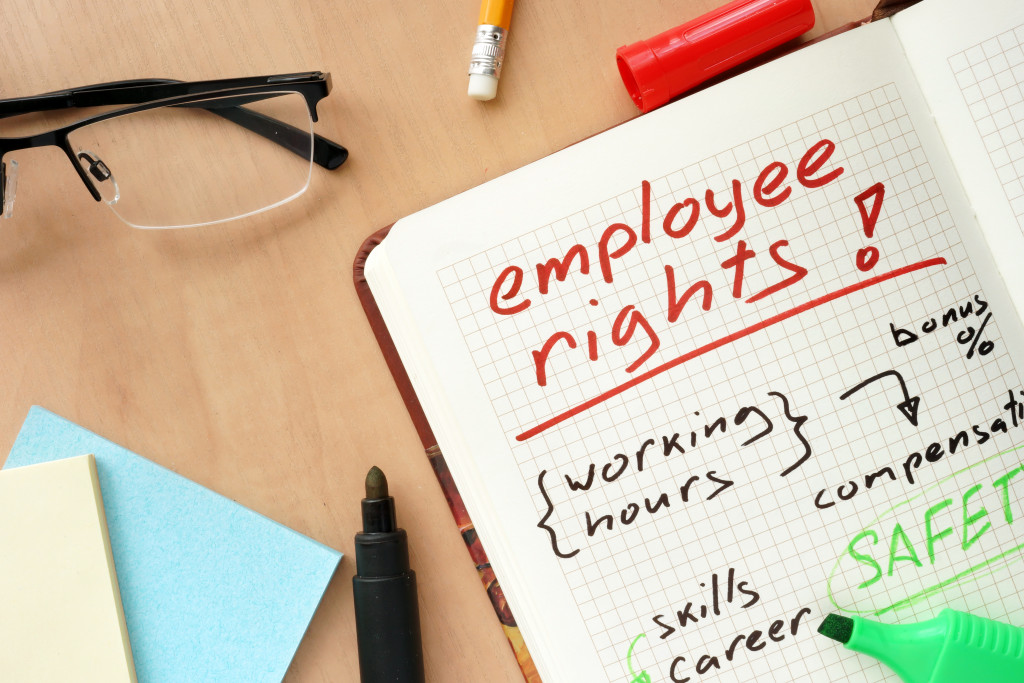As an employee, you have certain rights in the workplace. Knowing what they are and how to protect them is essential for avoiding exploitation and ensuring a fair working environment. If you believe your rights have been violated, you have the right to file a complaint against your employer.
The Right to be Free from Harassment
Harassment in the workplace is illegal. If you are being harassed at work, you should report it to your supervisor or HR department. Some signs of harassment include:
- Unwanted physical contact
- Verbal abuse or threats
- Racial, ethnic, or sexual comments or jokes
- Display of offensive materials
Your rights include being free from harassment, discrimination, and retaliation in the workplace. This means that your employer cannot bully, threaten, or intimidate you because of your race, sex, religion, age, disability, or any other protected characteristic.
The Right to Fair Pay and Working Conditions
You have the right to be paid fairly for your work. Your employer must pay you at least the minimum wage and cannot withhold your pay without a good reason. You also have the right to reasonable working conditions. This includes having a safe and healthy workplace, free from dangerous conditions or hazards.
When it comes to fair pay, you also have the right to receive overtime pay if you work more than 40 hours a week. Your employer cannot require you to work off the clock and must pay you for all the time you work. If you are not being paid fairly, you can file a complaint against your employer.
The Right to Know Company Policies and Procedures
You have the right to familiarize yourself with your company’s policies and procedures. This includes knowing how to file a complaint if you believe your rights have been violated. If you are unsure where to find this information, you can ask your supervisor or HR department.
This is important because it allows you to hold your employer accountable if they do not follow their own policies. For example, if your company has a policy against discrimination, but you are being harassed at work, you can file a complaint and cite the company policy.
The Right to Unionize
You have the right to unionize if you choose. This means you can join a union of workers with similar jobs or negotiate for better working conditions and pay. Through unions, employees can pool their resources and bargaining power to negotiate better contracts with their employers.
If you are interested in unionizing, you should speak to your supervisor or HR department. They should be able to provide you with information about unionizing and how it works. However, if your employer is opposed to unionizing, they may try to intimidate or retaliate against you. This is illegal, and you can file a complaint if it happens.
For this, you could consider using union arbitration services. This is a way to resolve disputes between employees and their unions without going to court. If you have a disagreement with your union, you can speak to an arbitrator who will listen to both sides and make a decision.
The Right to File a Complaint

If you believe your rights have been violated, you have the right to file a complaint. This can be done with your supervisor, HR department, or the government. Your employer should have a process in place for filing complaints, and they should provide you with information about how to do so.
The right to file a complaint is crucial to protect yourself from being taken advantage of or mistreated at work. By knowing your rights, you can take action if something goes wrong and protect yourself from further harm.
The Right to Due Process
If you are accused of violating company policy, you have the right to due process. This means that your employer must give you a chance to defend yourself before taking disciplinary action. They are not allowed to terminate your employment or punish you without a fair hearing.
For example, if you are accused of harassment, your employer should investigate the allegations and give you a chance to tell your side of the story. If they find that you did not violate company policy, they cannot discipline you.
You can protect yourself from being taken advantage of or mistreated at work by knowing your rights. If you have any questions about your rights in the workplace, speak to your supervisor or HR department. Always keep in mind that you have the option to take legal action if you believe your rights have been violated.

